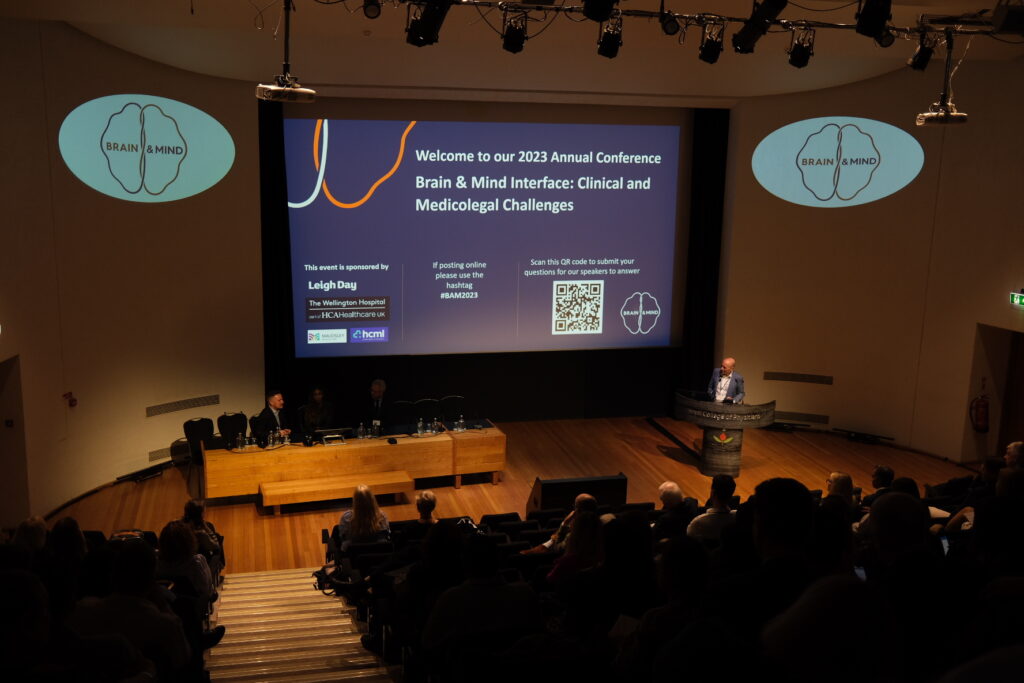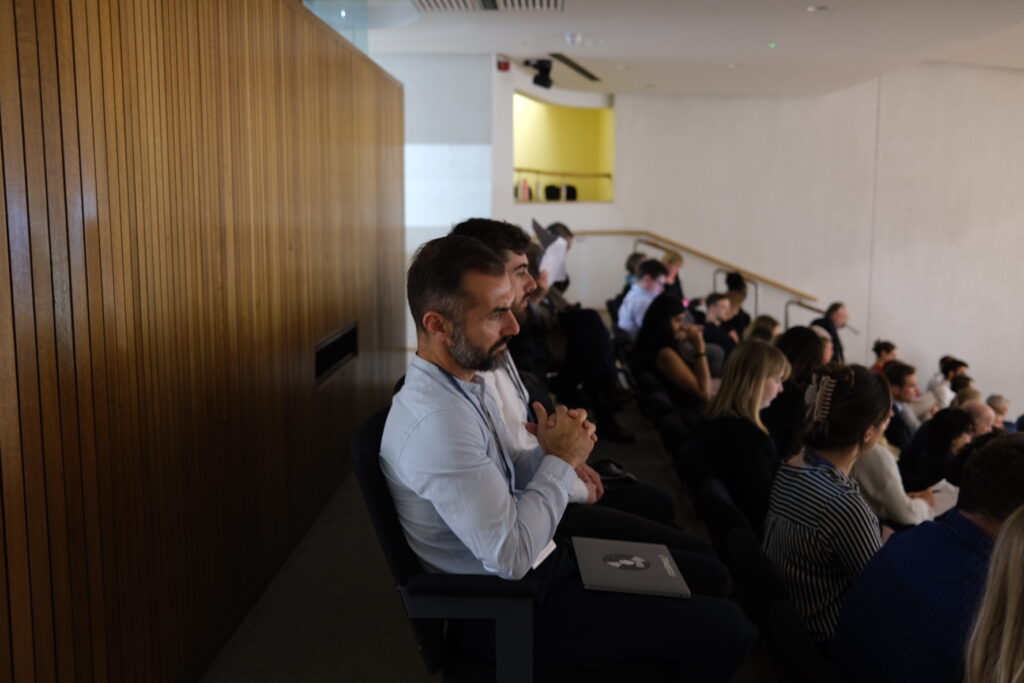
The Brain & Mind Conference at the Royal College of Physicians on 5 October 2023 brought together clinicians and lawyers to explore the “Brain & Mind Interface” and the challenges arising therefrom.
The Conference Foreword by Professor Mark Edwards, Consultant Neurologist, and Dr Mike Dilley, Consultant Neuropsychiatrist, set out that the event looked to examine the impact of health and social inequalities across clinical care and in the interface between medicine and the law. Specifically, the event looked to address the split between brain and mind as one that influences opinions and behaviour. It sought to throw a spotlight on the way in which biases regarding the relative value and importance of mental vs physical aspects of illness impact clinical and legal practice, and ultimately quality of care for those who are ill.
The event looked to highlight care for those “whose problems do not fit neatly into the boxes we construct for those that are ill” as between “physical” “organic” and “psychiatric” diagnoses in clinical and social care settings and in the context of litigation.
Healthcare and social drivers to bias and inequality at the brain/mind interface
Dr Ndidi Boakye, Consultant Clinical Neuropsychologist & Clinical Psychologist, opened the conference with a discussion about the health inequalities in our health system and the gaps they cause for access to care. Her discussion highlighted the recognition of access to care for socioeconomically deprived groups, ethnic minorities, people of colour, disabled people, LGBTQIA, and older age people, and how these groups are impacted upon by the cultural dimensions and biases of those providing that care, be it clinical or legal. She set out that important discussions about racialisations, discrimination, racism and their intersections have been largely absent in rehabilitation and how the absence of that discussion impacts the practical and real-time access to services by diverse populations.

Functional Neurological Disorder: Less equal than others
Professor Jon Stone, Consultant Neurologist and Honorary Reader in Neurology, University of Edinburgh and NHS Lothian, went on to discuss the diagnosis of Functional Neurological Disorder. He discussed how common functional symptoms are in clinical practice. He discussed changing attitudes to these conditions over the decades towards a gradual understanding in medicine and law of the diagnosis as one premised on positive signs (as opposed to a diagnosis of exclusion), as a ‘software’ rather than ‘hardware’ issue, as normal and as treatable and potentially reversible. He addressed the complexity of tackling FND in a medicolegal process and legal system based upon an expectation that ‘genuine’ symptoms are regular and predictable, and a system which is highly attuned to suspicions around feigning and wilful exaggeration.
Traumatic Brain Injury: Why is it so common in seldom heard from groups?
Dr Mike Dilley, Consultant Neuropsychiatrist, King’s College Hospital NHS Foundation Trust and Brain & Mind Limited, discussed the impact and prevalence of socio economic-related factors in brain injury within exposed populations including educational attainment, mental health and depression, alcohol use, health literacy, stigma and discrimination, cultural factors, offending and homelessness. He discussed the extent to which these factors impact first the prevalence of brain injury, and then again upon that individual’s ability to access services and rehabilitation to treat their injury, including that few services provided supported access to treatment, poor screening and recognition and inequality of access to physical and mental heath and social care.
Can biomarkers decrease inequalities in neuropsychiatric conditions?
Dr Tom Pollak, Consultant Neuropsychiatrist at King’s College London and Brain & Mind Limited, presented on the use of biomarkers to decrease inequalities in neuropsychiatric conditions. Potential advantages would include early and accurate diagnosis, the avoidance of clinician bias, a reduction in stigma and the fuelling of big-data insights. On the flip side, there are arguments that access to biomarkers perpetuate privilege, that biomarkers for psychiatric disorders may in fact increase a perception of the danger of the individual and induce pessimism around treatment, and that there has been an explosion of unevidenced treatments based on early research. He suggested a way forward around funding better services to complete better biomarkers, complemented by policies for equal access and education, awareness and anti-stigma work.
The Leigh Day Medicolegal Debate: How biases and inequalities at the interface of brain and mind impact medicolegal thinking and methodology
Christopher Johnston KC of Serjeants’ Inn, William Latimer-Sayer KC of Cloisters and Bradley Martin KC of 2 Temple Gardens participated in a debate between barristers about the challenges around dealing with diagnoses of FND and/or functional symptoms in the medico legal context in claims for personal injury or clinical negligence. The barristers addressed between them a case study and specific factors arising in litigation including diagnosis, foreseeability and causation of a functional diagnosis, and the impact of bias in the context of the same. They went on to discuss issues around allegations of malingering and inconsistencies in evidence arising in these cases, and the approach to treatment, prognosis and the quantification of claims.
The Impact of biases and health inequalities through a chronic pain lens
Dr Hannah Bashforth, Clinical Psychologist, The Clinical Psychology Practice, discussed the spectre of bias and health inequalities in the assessment and treatment of pain in clinical practice and medicolegal settings. She discussed pain as a complex but ubiquitous experience. She discussed the bio-psychosocial model of understanding pain conditions and the impact of social determinants of health, including a clash between chronic pain stigma and health inequalities. She stressed the impact of clinical bias on a legal context including the draw to oversimplify and reflect bias.
Diversity in clinical trials – why and how?
Dr Vanessa Raymont, Consultant Neuropsychiatrist and Senior Clinical Research, University of Oxford and Brain & Mind Limited, finished off the day with reflection on issues around the lack of diversity in clinical trials, the importance of the same and how we might go about addressing that lack.

Conclusions
The Conference was a thought provoking event that encouraged the clinicians and lawyers in the audience alike to confront the biases that we each hold and use in our professional practice.
The Conference was organised by Brain & Mind Limited and sponsored by Leigh Day LLP and HCA Healthcare.